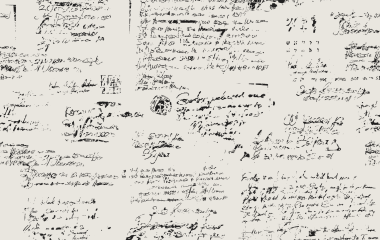
The holidays of Tishrei—with their emphasis on sin, repentance, reconciliation, and joy—are behind us. It is time to get back to our “normal” routine and catch up on the many items on our agenda. From a practical point of view, the New Year is really beginning, and along with it, the weekly Torah cycle. It is most unfortunate that with all the catching up to do—along with the short week that follows Simchat Torah—parshat Breisheet is often not given the time and attention it so deserves. Creation, paradise, sin, exile, sin (again), death, lust, sin, hope; these are the crucial messages of parshat Breisheet. In the beginning we must address how these fundamental concepts relate to us as we go about our daily lives.
Unfortunately, it does not take long for man to fail to heed the Divine command. Though G-d told him, “Of every tree of the garden you may eat” (Breisheet 2:16), man chose the one tree that was off limits. Humans have an aversion to listening to orders. A close reading of the Biblical text shows it is not man’s sin per se that causes G-d to punish man, but rather man’s actions in light of sin. Sinning is part and parcel of life: “There is no man righteous in the land who does [only] good, and does not sin” (Kohelet 7:20), and one can gain atonement even for the gravest of sins with proper repentance. The Book of Amos has, as its opening premise, the notion that punishment for sin is delayed until the sin is repeated so often that it becomes ingrained in our persona. While Adam violated his one and only command, the possibility still existed to avert Divine wrath.
“G-d called to man and He said, ‘Where are you?’” (Breisheet 3:9). Man sins, yet G-d calls out to him in order to engage him in dialogue. Perhaps man would understand that the question was a spiritual one, not a physical one. Perhaps man would admit his wrong, and grow from his mistake. Perhaps man would long to re-establish a relationship with G-d. Perhaps, perhaps, perhaps, but it was not to be. “I heard your voice in the garden and I was afraid because I was naked, so I hid” (Breisheet 3:10). Man denies wrongdoing and tries to run away from the problems, hoping they will go away on their own. This notion of running away in the midst of crisis so bothered our sages that they prescribed the reading of Sefer Yonah on Yom Kippur afternoon, demonstrating the futility of running away from our duties. While we recognize how silly it sounds when others try to flee G-d, we have trouble recognizing such when we ourselves are doing the running.
Yet G-d still leaves the room open for teshuva. G-d confronts man, but does not yet punish. “Did you eat from the tree from which I commanded you not to eat?” (Breisheet 3:11). A simple yes would have sufficed. “The woman that you gave to be with me—she gave me what I ate from the tree.” Okay, I sinned; but don’t blame me, G-d, it’s actually Your fault. Had you not created this woman, I would not have sinned. Besides the inherent chutzpah in talking to G-d like that, the implicit notion that man—left alone—would not sin is highly questionable, to say the least.
Man undoubtedly sins—sometimes by accident, but many times deliberately. G-d understands that—after all it was He who created us and implanted within us an inclination to do wrong—and hence gives us opportunity after opportunity to make amends. But amends can be made only if and when we admit our wrongdoing. Can we succeed where Adam failed?



